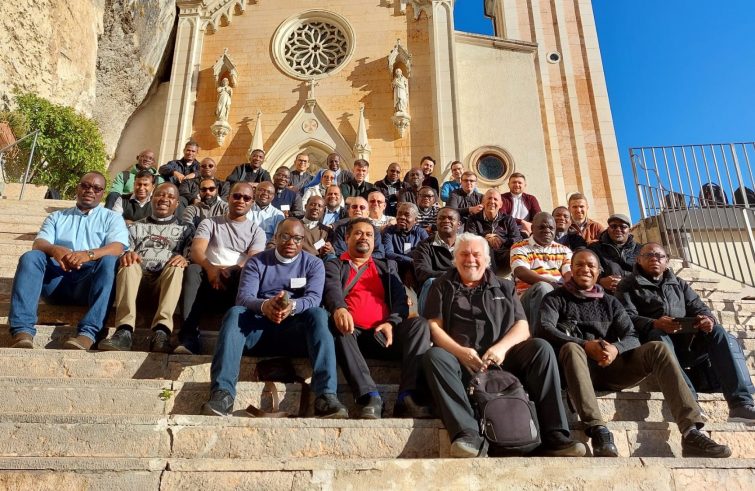
“We are priests from Africa, Europe, Asia and America. We have been serving dioceses in Italy for over a year.” These are the opening lines of the open letter written by a numerous group of priests who attended the refresher course for foreign-born pastoral workers serving in Italy, held this past October 17-21. The course was held at the Verona-based Unitary Missionary Formation Centre ( CUM). As a result of that experience, they wished to share some of their reflections, having been – they write in the letter submitted to the reviews Noticum and Popoli e Missioni – “involved in a dynamics of synodal dialogue.”
“A living Church in Italy.” “First of all, we would like to thank the Churches that have welcomed us and allowed us to be here. With respect to our assignments in parish communities, we found that the parishioners were diffident and occasionally somewhat aloof, especially at the beginning. Nevertheless, we are grateful to all those who have been welcoming and open towards us foreign priests. We also thank them for their patience in accepting our poor knowledge of the Italian language.” Their testimony continues as follows: “In actual fact, what motivates us is the yearning to share with the people and with the Church in Italy the cultural and ecclesial richness of those countries and Christian communities that have invited us to embrace -with kindness and without pretension – a new culture, and to integrate ourselves into a Christian tradition that we perceive as deeply rooted.”
Commitment, generosity, formation… ” We are discovering a wealth of riches in the Church in Italy: its thousands-year history, its organisation, including economic organisation, its structures, such as the oratories, the presence of committed Christians, the generosity of their commitment, solidarity, the seriousness of its formation pathways, especially for the clergy, the manifold expressions of popular piety and prayer practices. And yet,
in the Churches “that are receiving us we also found some limitations”,
such as “the ageing of participating members, the scarce presence of young people, a feeling of superiority, a sense of fatigue and monotony, such as in the hymns, the senior clergy that tends to be conservative and afraid of novelty, or to adapt, with hardly any enthusiasm or audacity in addressing decisive issues.”
“Rigidity, dialogue difficulties, diffidence.” It is a rather distinct picture of the Church in Italy… And their integration is often marked by “difficulties” because “we are met with rigidity, communication difficulties, diffidence before new proposals. In some cases we experience a lack of communication and dialogue with our confreres or with the bishop himself. Some see our presence as destabilising, causing competition, and a fear of diversity.
We have also perceived the need for greater formation, especially for the laity, that could revitalise the communities.
For example, reorganizing the territory into pastoral units would be far more effective if it were adequately prepared by all.” The signatories say they have no intention of passing a negative judgement, since “we are happy to be here, and above all we are eager to joyfully share what we consider to be the riches we bring with us: giving ourselves fully to the Lord and to others, sharing the enthusiasm of our young age and the youthfulness of the Churches we come from. They have inspired us with the enthusiasm of living out our faith, love for the Church, and courageous Gospel proclamation.”
Dialogue at all levels. The priests’ letter continues: “we feel that we are capable of listening to everyone, starting with the little ones and the poor. We can be of help in welcoming people arriving from other continents in search of better living conditions. We are becoming experts in interculturality, which is so important for our society. We were pleased to discover […] a wealth of humanity among us” in addition to
“differences that well express the multifaceted beauty of the Church”
such as “the diversity of liturgical rites (four rites in addition to the Latin rite), the presence among us of Eastern-Rite married priests, stimulating us to rediscover the beauty of both the family and the choice of celibacy. These diversities foster ecumenical dialogue among Christians and promote mutual openness.” The letter closes with the following words: “As we offer our service to the Italian Church, we pray that our presence may promote encounter and dialogue at all levels: in the Christian communities, in the presbyteries, in the dioceses, the necessary dialogue between the Churches, those that have sent us and those that receive us, so that we may all feel that we are a missionary Church on the move. We will then be signs of a reconciled and united humanity, where all sons and daughters of God understand that they have one sole human dignity that does not depend on facial features, skin colour or country of origin.”











